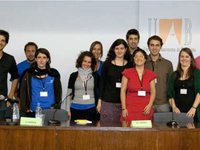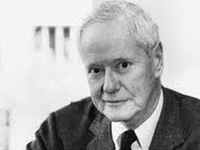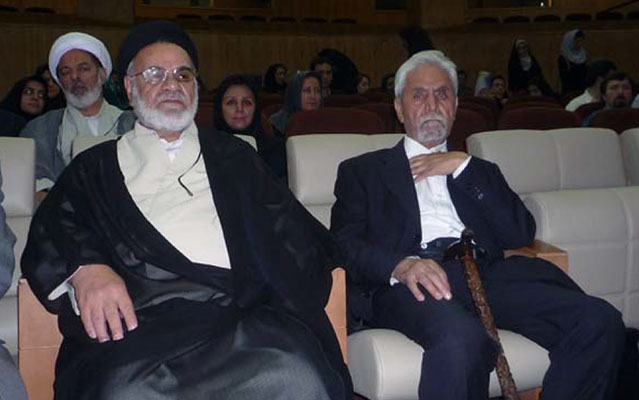Read more about Conferences

Young Sociologists, Young perspectives
by Ana Vidu

Celebrating Robert K. Merton
by Nadia Asheulova and Jaime Jiménez
July 18, 2011
The first of what might become a series of regional meetings on sociology in and of the Middle East was held in Tehran on May 28 and 29, 2011. Entitled the “Regional Conference on Social Thought and Sociology in the Contemporary Middle East”, the meeting brought together Arab, Iranian and Turkish sociologists from the region and beyond. The conference was organized by the Iranian Sociological Association in collaboration with the International Sociological Association and supported by the Istanbul Foundation for Science and Culture, the National Library and Archives of the Islamic Republic of Iran, the Institute for the Study of Religion and Thought in Mashhad, the Center for International Scientific Studies and Collaboration, and the Social Sciences Faculty Branch, of Jamee-Shenasan Publications. Some fifty papers were presented over the two days, half of them in Persian.
Opening lectures were delivered by Michael Burawoy and the doyen of Iranian sociology, Gholamabas Tavasoli. Burawoy directed his remarks to what the conference felt to be an all important issue, that is, the establishment of a regional sociology in the Middle East. Such a sociology was expected to comprehend processes not only within nations but also across nations. Burawoy saw the Middle East as testing the possibility of a global sociology, to the extent that the region can contribute to the universalization of sociology. Tavasoli, basically in harmony with Burawoy’s position, drew attention to alternative perspectives in social thought, emphasising, for example, that there are ideas in sociology, such as civil society, that have their origins in pre-Islamic or Islamic Iran and not only Greece.
Discussions of sociology in the Middle East usually critically assess the state of sociology and emphasize the need to consider Middle Eastern alternatives to Western traditions. This conference was no exception. Several papers, by Tina Uys, Sari Hanafi, Michael Kuhn and Ebrahim Towfigh discussed the problematic state of sociology in the Middle East such as Orientalism or academic dependency. Participants were quick to point out, however, that the objective was not to engage in West bashing but to do good sociology. This meant extending our horizons beyond knowledge generated in the West to include the Middle East and other regions as sources of concepts and theories. Indeed, one often hears calls for indigenous or alternative sociologies. It was refreshing that this conference not only discussed these calls but also presented examples of Middle Eastern sources for social thought. Sait Özervarli, Mohamad Tavakol and Seyyed Javad Miri discussed the works of a galaxy of Iranian and Turkish thinkers from the 19th and 20th centuries and urged that the content of their thought be considered seriously for the establishment of a Middle Eastern sociology. Furthermore, the source of Middle Eastern sociology was not to be restricted to narrowly defined social thought but was to be extended to literature, as pointed out by Biuk Mohammadi. Such a sociology does not neglect Western thought but creatively assimilates it. Özervarli brought out how this was done by several Ottoman thinkers of the 19th century.
Another issue, central to discussions of sociology in the Middle East, is the relationship between Islam and sociology. Based on his vast experience in teaching and research in this area, Riaz Hassan discussed what a course on the sociology of Islam might look like. This inevitably raises the question as to whether there was a conflict between theological and sociological approaches, particularly when it came to the explanation of the origins of Islam. Sara Shariati’s paper discussed this problematic relation in some detail and in doing so, clearly distanced herself from the idea of Islamic sociology. At the same time the conference also included presentations from several clerics who advanced the idea of an Islamic sociology, and put forward a position more hostile to Western sociology.
Many of the participants were keen on the idea of continuing to meet on a yearly or biennial basis. Plans are underway to organize the next conference on social thought in the Middle East in Istanbul, possibly in 2011. In line with the critical spirit of the conference, however, it was also suggested that ‘Middle East’ be dropped as it was less than desirable to refer to the region from the vantage point of, as the Dutch student of colonial trade and society J. C. Van Leur once said, “the deck of the ship, the ramparts of the fortress, the high gallery of the trading-house”.
Syed Farid Alatas, Department of Sociology, National University of Singapore
This issue is not available yet in this language.
Request to be notified when the issue is available in your language.
If you prefer, you can access previous issues available in your language:










